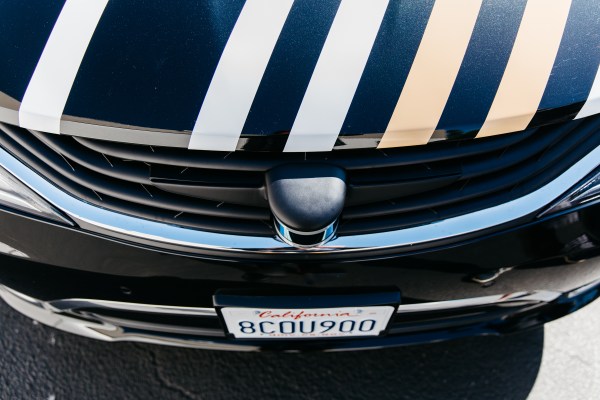Fiat Chrysler and AV startup Voyage partner on self-driving minivans - 3 minutes read
 Self-driving vehicle startup Voyage said Monday that it has inked a deal with Fiat Chrysler to supply purpose-built vehicles, a partnership that will help accelerate its plan to launch a fully driverless ride-hailing service.
Self-driving vehicle startup Voyage said Monday that it has inked a deal with Fiat Chrysler to supply purpose-built vehicles, a partnership that will help accelerate its plan to launch a fully driverless ride-hailing service.Voyage, a three-year-old startup that tests and operates a self-driving vehicle service (with human safety operators) in retirement communities in California and Florida, started by modifying Ford Fusion vehicles. The company then began modifying FCA’s Chrysler Pacifica Hybrid minivans with its autonomous vehicle technology.
This new deal, which was nearly two years in the making, marks a critical step in Voyage’s plan to deploy fully driverless vehicles as a ride-hailing service. It also illustrates FCA’s increasingly large role as a supplier to AV developers. The automaker already has a deal with autonomous vehicle company Waymo to provide thousands of purpose-built Chrysler Pacifica minivans. FCA also has a partnership with Aurora to develop self-driving commercial vehicles.
FCA’s approach to rapid advancement of autonomous vehicle technology is to focus on vehicle-side needs while establishing smart and strategic collaborations that promote a culture of innovation, safety and know-how, a company spokesperson said in an email to TechCrunch.
Under this deal with Voyage, Fiat Chrysler is supplying Voyage with purpose-built Pacific Hybrids that have been developed for integration of automated technology. These vehicles come with customizations such as redundant braking and steering that are necessary to safely deploy driverless vehicles, Voyage CEO Oliver Cameron told TechCrunch.
FCA characterized the deal as more than just a supply contract, noting that it will provide support to Voyage to understand the features, operation and technology of the vehicle.
“This opportunity gives engineering and product development teams at Voyage and FCA a greater understanding of the impact of AV technology use on the underlying vehicle, reducing the learning curve for all and guiding future vehicle development,” an FCA spokesperson said in an email to TechCrunch.
Last year, TechCrunch first reported that Voyage had partnered with an automaker to provide this next-generation vehicle designed specifically for autonomous driving. FCA ended up being that unknown partner. FCA and Voyage signed the deal in August 2019.
“As part of this collaboration, Voyage and FCA will jointly adapt and validate the connections between the self-driving software, sensors, and embedded systems,” according to the announcement posted on Medium.
Cameron wouldn’t say how many vehicles FCA will supply. It’s likely dozens not thousands of vehicles. Voyage, which has raised a total of $52 million, is still a small operation compared to AV giants like Waymo and Cruise.
Voyage is still a ways off from reaching its driverless ride-hailing service goal. Although, its deal with FCA along with clearing an important regulatory hurdle with California officials are two moments of progress on its long road to a profitable, commercial-scale robotaxi service.
Cameron has previously described the company’s progress as “inching” toward driverless. The company’s self-driving software has reached maturation in the communities it is testing in, and Voyage is now focusing on validation, Cameron told TechCrunch last year.
Source: TechCrunch
Powered by NewsAPI.org